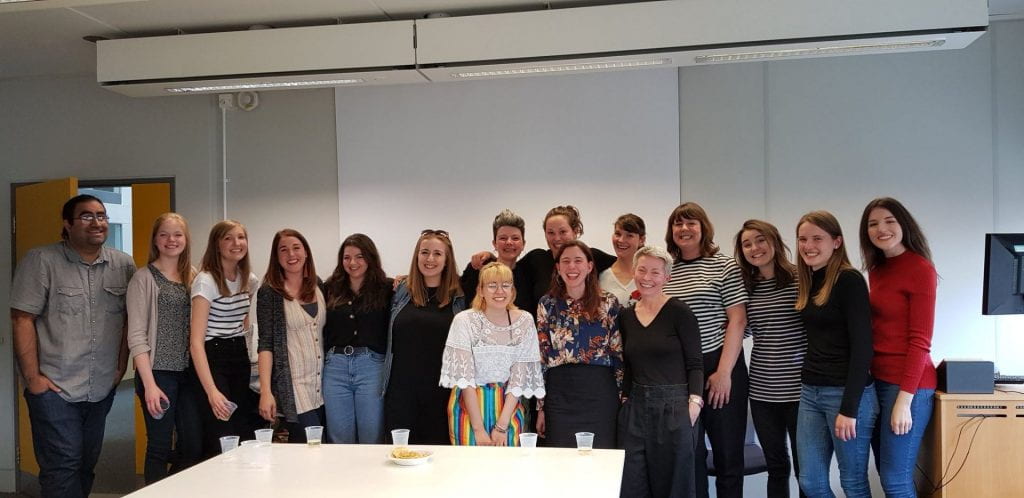It feels like a long time ago that I was preparing to start at City… and also something that was a long time coming before that.
I don’t know if I’ve ever said that I was rejected from (what was then) the SLT PG Diploma (now the MSc), and that it meant I spent a fair bit of time thinking about how a) I was going to manage to get onto an SLT course in the first place, and b) how I would adjust to going back to studying after eight years of working and consistently earning. I had a year of studying for a Biology A level while working full-time, which was definitely one of the most challenging things I’ve done.
Coming back to studying after a break was something I was definitely worried about, for lots of reasons. My main concern- one that I hear a lot from prospective City students or those I meet doing talks and higher education fairs – was whether my brain would be able to cope with taking in more/new information. As is the case for most courses, I needed evidence of study within the last five years, hence the A level. Once I arrived at City, I realised I was far from the only one to have done this or an access course at college…. and it turned out that it stood me in good stead for all of the learning to come. I also realised that the emotional and academic support from my tutors was invaluable when it came to getting tips on remembering, understanding and producing work.
I was definitely worried about money/earning/surviving. With a previous student loan still to pay back, it was pretty daunting to think about four years of struggling through with few funds, especially with a mortgage to pay. And, again, I have definitely not been alone in this. Lots of people in my year group have families and other financial responsibilities. Most of us juggled part-time jobs whilst we were studying, lots of which were based at the university.
I don’t think I predicted how challenging going to back to studying would be- mainly the sacrificing of weekends and lots of evenings to get my work and study in- and I definitely didn’t predict the amount of support that would be available, as long as I asked for it.
One of the main things it took some time to get over was my feeling that I had something to prove, that returning to studying meant that I had failed in my previous career (I hadn’t even considered this until someone made a stupid comment at a party), and that meant that I waited too long to ask for help when I felt like I didn’t understand what I was being taught.
Maybe you’re also thinking of returning to studying? If so, I couldn’t recommend it highly enough. I’m sure that I wasn’t mature enough at 18 to study SLT (many people are, of course). I’m nowhere near the oldest member of my year group. Now that the course is done, returning to work feels like the scary part.







Recent Comments